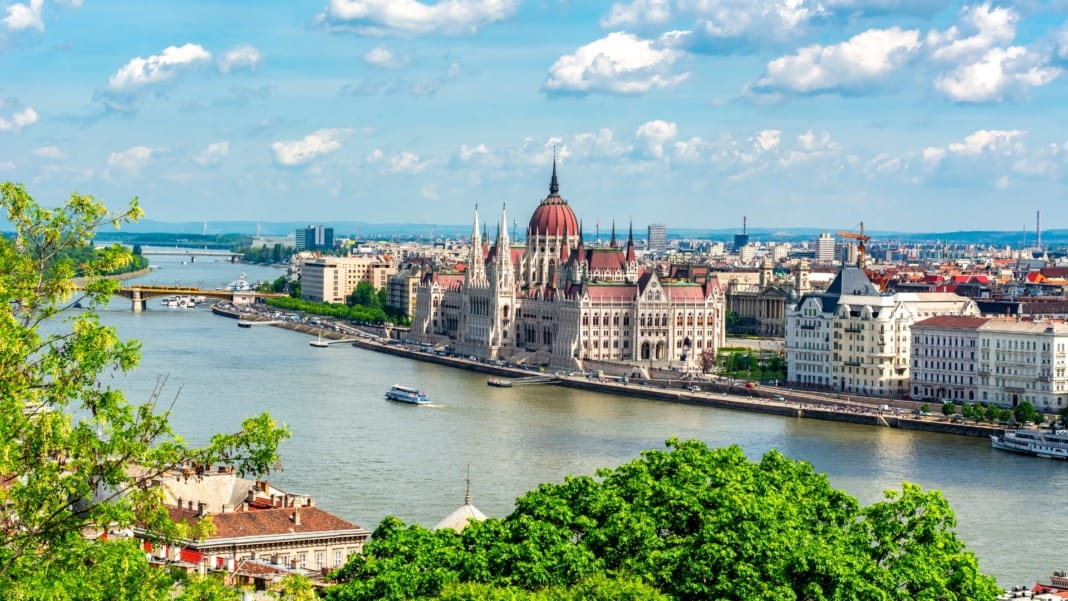With the rise of hybrid working models, enabling employees to blend leisure with their work obligations remotely, Budapest has been heralded as the top city for workcations this year. The Hungarian capital outshone global competitors like New York, Berlin, and Singapore in the International Workplace Group’s second annual Work from Anywhere Barometer. This study also highlighted other Asian cities such as Beijing, Jakarta, Mumbai, Manila, and Hong Kong.
The growing trend of workcations
The fusion of working and vacationing, known as ‘workcations,’ has surged in popularity. This trend is supported by the widespread adoption of hybrid working models and advancements in cloud technology, which allow people to work from locations they find most conducive. According to the latest data from International Workplace Group, 84% of hybrid workers are open to extending their holidays to work from their destinations.
Further findings show that 74% of office employees view a ‘work from anywhere’ policy as crucial when exploring new job opportunities. Equally, 75% noted that the flexibility of working from any location significantly boosts their job satisfaction.
Scoring the best cities for workcations
International Workplace Group, with over 4,000 flexible office locations in more than 120 countries, evaluates cities through its Work from Anywhere Barometer against ten key criteria, including climate, culture, accommodation, transport, and broadband speed.
Singapore excels among Asian cities
Moving up 14 spots from the previous year, Singapore now ranks seventh on the list of top cities for workcations. It excels in areas like broadband quality, food, happiness, culture, and sustainability. Renowned for its efficient airport and as a gateway to Southeast Asia, Singapore is a prime spot for digital nomads.
Dubbed the ‘Garden City’, Singapore blends modern development with extensive green spaces, offering a serene retreat from city life. It is the happiest country in Asia and aims to achieve island-wide 5G coverage by 2025. Its reputation as a culinary and events destination is further enhanced by its ranking for the number of Michelin-rated restaurants per capita and its ability to host significant events such as the Formula 1 Grand Prix.
Budapest excels with high scores
Budapest not only topped the list but also scored well in categories like transport and accommodation costs, broadband speed, and the availability of flexible workspaces. The city’s historical ambience, vibrant neighbourhoods, and ample green spaces make it an attractive option for those seeking a balance of work and leisure.
Other top cities and emerging destinations
Barcelona remains a preferred workcation spot, celebrated for its lively atmosphere and stunning architecture. Rio de Janeiro, in joint second place with Barcelona, improved its position due to its affordable living expenses and robust internet services.
The barometer also welcomed new entrants such as Austin, Texas, notable for its vibrant cultural scene and dynamic tech environment; Podgorica, Montenegro, appealing for its tranquillity and emerging start-up scene; Marrakesh, Morocco, with its vibrant culture and growing support infrastructure for remote work; and Valletta, Malta, known for its historical allure and favourable climate for remote workers.
Transforming work culture
Mark Dixon, Founder and CEO of International Workplace Group, commented on the shift towards hybrid working models, stating, “For an increasing number of workers, the days of long daily commutes are over, now that hybrid working offers the opportunity to work wherever we will be the most productive. And thanks to cloud technology, that can be anywhere in the world, provided there’s a high-quality internet connection available.”
He added, “So, it’s no wonder that more and more individuals are embracing the idea of combining work with travel, whether it’s for a few days tacked on to the end of a vacation, or a few months as a digital nomad. This trend is set to accelerate further, and we will continue to see more and more companies embracing WFA policies to improve employees’ work-life balance and increase their attractiveness as an employer.”
Through its expansive network of flexible workspaces, International Workplace Group facilitates the ongoing trend of remote work and workcations, enabling individuals to capitalise on new opportunities and embrace a more adaptable and satisfying work lifestyle.





